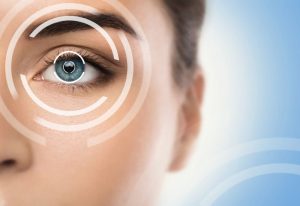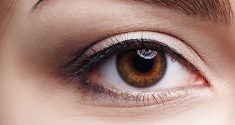In an intriguing new study, researchers were able to add to the body of knowledge linking eye health to overall health. Building on earlier human studies demonstrating a correlation between poor eye health and overall poor health, this new study, published in the peer-reviewed journal Nature Communications, showed a stronger, more multifaceted link between eye health and overall health. This new study revealed fascinating links between eye health and lifespan, as well as new information on how those are in turn linked to diet and circadian rhythms.
Eye Health Linked to Overall Health

Inflammation in the eye can reflect the presence of inflammatory diseases elsewhere in the body, such as Crohn’s disease, inflammatory bowel disease and ulcerative colitis. Changes in the blood vessels in the eyes can be used to predict changes in the brain’s blood vessels that may increase the chance of developing dementia and suffering memory loss issues. Other diseases that can be seen in the eyes include thyroid disease, multiple sclerosis and such autoimmune diseases as lupus.
New Study Links Eye Health and Lifespan
New research conducted by the Buck Institute for Research on Aging also showed links between eye health and overall health, in the sense of longevity. According to this new study, conducted using the Drosophila fruit fly, as has become standard due to certain genetic similarities, processes that take place in the eye are directly related to the overall aging process. Furthermore, as explained by Buck Institute Professor Pankaj Kapahi, PhD, who also served as senior study author, the study results also demonstrate that problems in the eye can be a driving factor in the development of problems in other bodily tissues.
“The finding that the eye itself, at least in the fruit fly, can directly regulate lifespan was a surprise to us,” said lead study author and Fountain Therapeutics scientist Brian Hodge, Ph.D., as quoted by Neuroscience News in a June 7, 2022 article. It turns out that, according to the study results, that lifespan regulation is linked to both circadian rhythms and diet. The circadian rhythm comes into play via the circadian clocks present in tissues and organs throughout the body, operating in every cell to regulate the timing of cellular activities, including molecular level activities, such as gene transcription and protein translation.
This all ties into diet primarily via earlier Buck Institute studies linking calorie restriction to circadian rhythm changes and increased lifespan. These previous studies inspired some of the work in this new study; work that led to a deeper understanding of the mechanics involved in the connections between eye health, lifespan, circadian rhythms and diet.
According to Professor Kapahi, the study results show that fasting can improve vision. But that’s not the only impact diet and calorie restriction have: The new study shows that most of the genes showing both strong circadian-rhythm-regulated oscillation and higher activity in response to calorie restriction were located in the eye’s specialized neurons, which are called photoreceptors because of their responsiveness to light. The study results showed that those genes are also linked to increased lifespan.
Naturally, the study results have led to a host of new questions and the researchers are looking forward to conducting further research and performing a deeper dive into the mechanisms involved.
Offering Deeper Insight Into Eye Function

Kapahi also noted the importance of protecting eye health, not only to protect vision, but also to protect health in general and longevity. Part of protecting eye health, as explained by Kapahi, is to be more mindful about the impact of screen usage, including mobile phones, tablets and computers, and bright artificial lighting during evening hours on circadian rhythm health.







